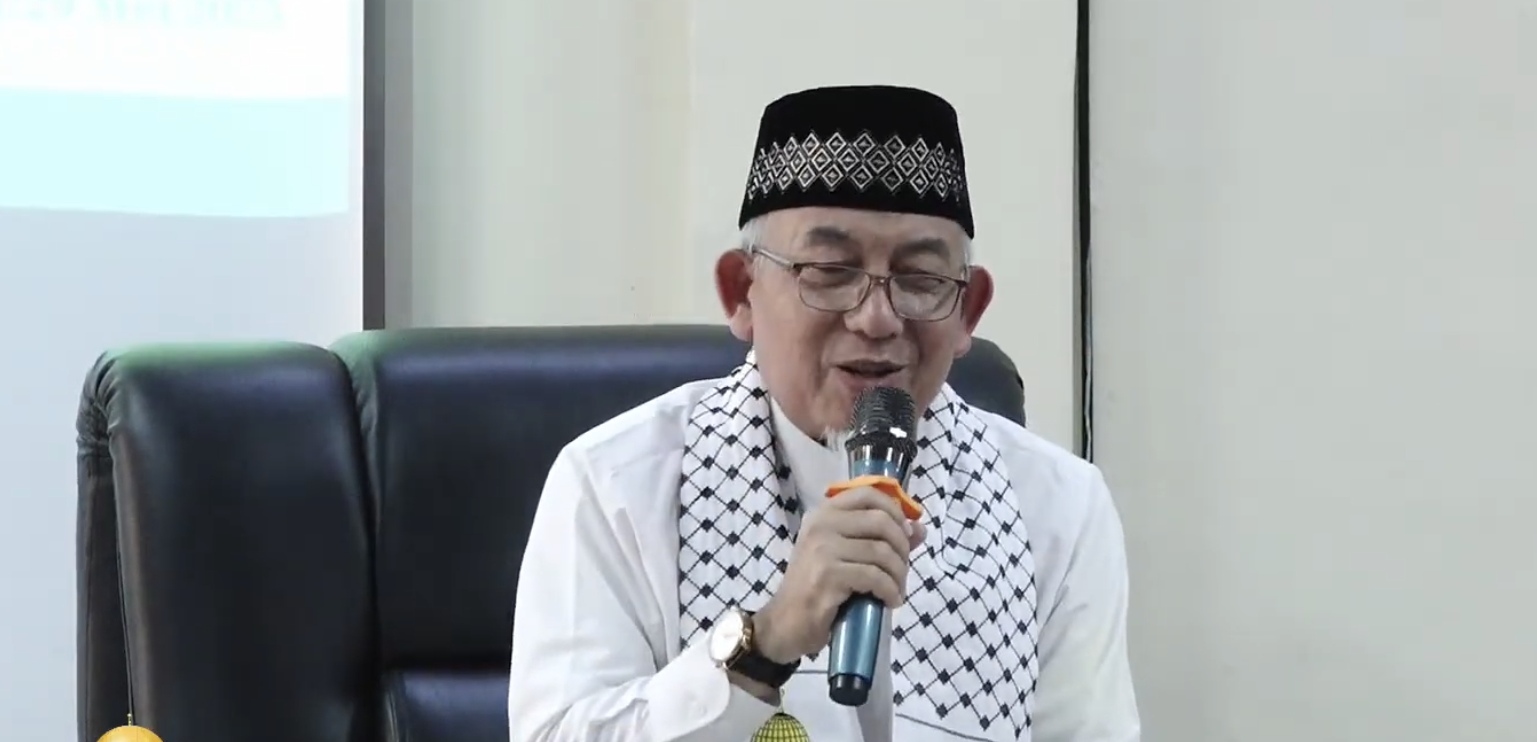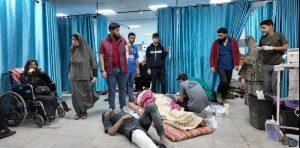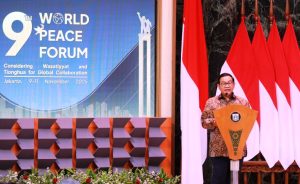Purbalingga, MINA – Imaam Yakhsyallah Mansur delivered a Qur’anic tafsir session at Darul Muttaqin Mosque in Karangcengis, Bukateja, Purbalingga, Central Java on Saturday, elaborating on the meaning of Surah Al-Fatihah and outlining four fundamental pillars of life found within the chapter.
In a gathering attended by knowledge seekers, Imaam Yakhsyallah introduced his book that discusses interpretations of short chapters from Adh-Dhuha to An-Naas, including Al-Fatihah. The book is a product of deep reading and study from various classical and contemporary tafsir texts, which he compiled into accessible language.
He emphasized that merely reading the translation of the Qur’an is insufficient to truly understand its meaning. “Many Qur’anic words cannot be translated literally. That’s why tafsir knowledge, especially asbabun nuzul and Arabic linguistics, is essential,” he said.
The session began with a communal recitation of Al-Fatihah, followed by a verse-by-verse interpretation. Imaam Yakhsyallah explained that Al-Fatihah is rich in knowledge, comprising four main branches: ushuluddin (creed), fiqh (Islamic jurisprudence), akhlaq (ethics), and history.
Also Read: Prophet Sulaiman Alaihi Salam, the Greatest Muslim King of All Time
Citing prominent scholars like Imam An-Nawawi, he noted that the 340 letters in Al-Fatihah each carry deep wisdom. For instance, the phrase “Alhamdulillah” reflects Islamic faith, “an‘amta” points to belief in prophets, and “maaliki yaumid diin” to the belief in the Day of Judgment. The verse “iyyaka na‘budu” covers core fiqh as it discusses worship, “ihdinas sirathal mustaqim” is the foundation of akhlaq emphasizing steadfastness, and “an‘amta” in past tense denotes a historical dimension—referring to past nations favored by Allah.
In the middle of the lecture, Imaam Yakhsyallah sincerely stated that none of the profits from his books are for personal gain. “Every penny goes to support our brothers and sisters in Palestine,” he declared.
At the end of the session, he handed over the tafsir book to Ustaz Nasihin, a respected community elder and scholar in Purbalingga, as a gesture of passing on knowledge and ensuring that da’wah continues to spread to all levels of society. []
Mi’raj News Agency (MINA)
Also Read: Imaam Yakhsyallah Mansur: Surah At-Tin Indicates the Command to Liberate Al-Aqsa































 Mina Indonesia
Mina Indonesia Mina Arabic
Mina Arabic